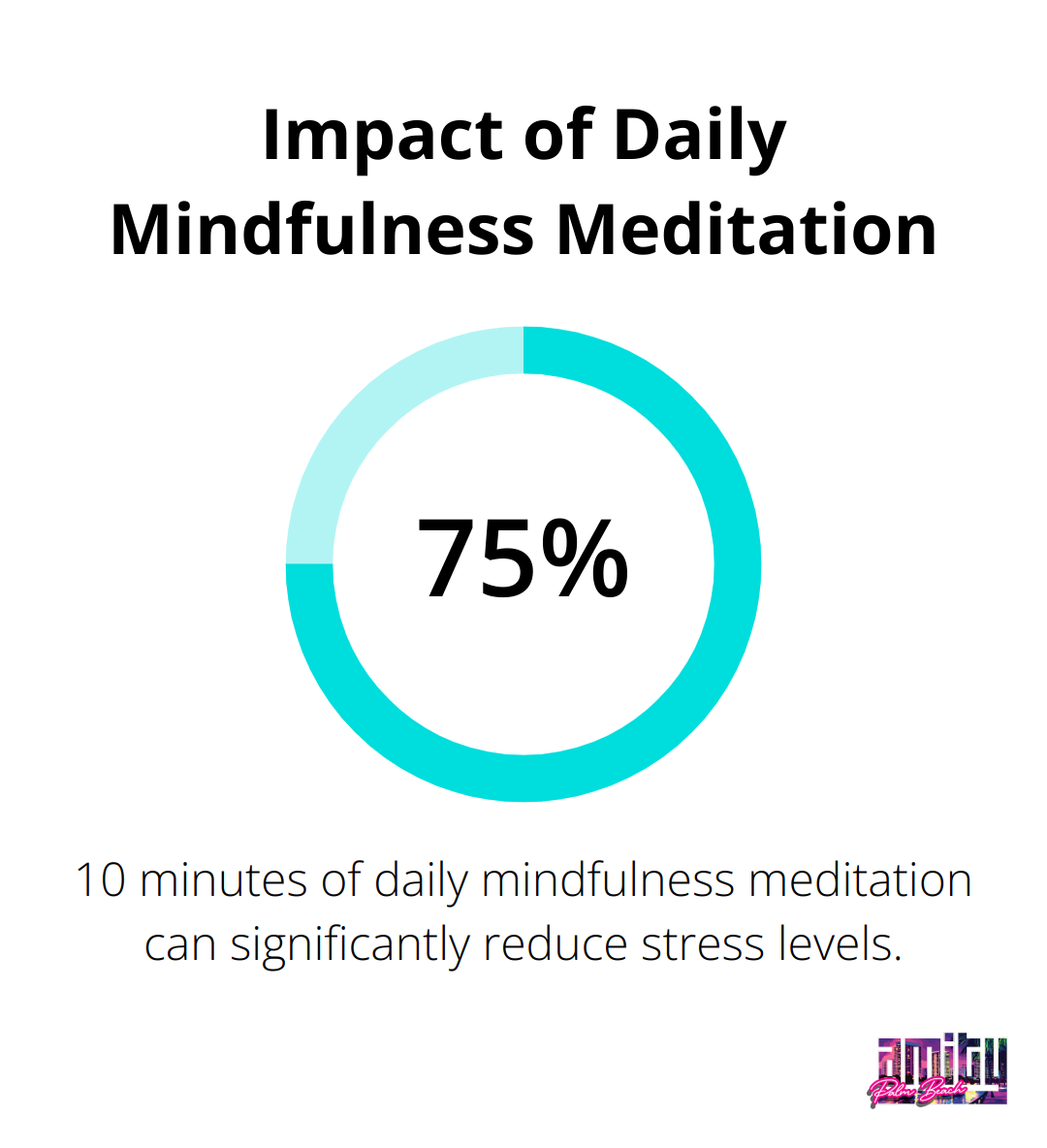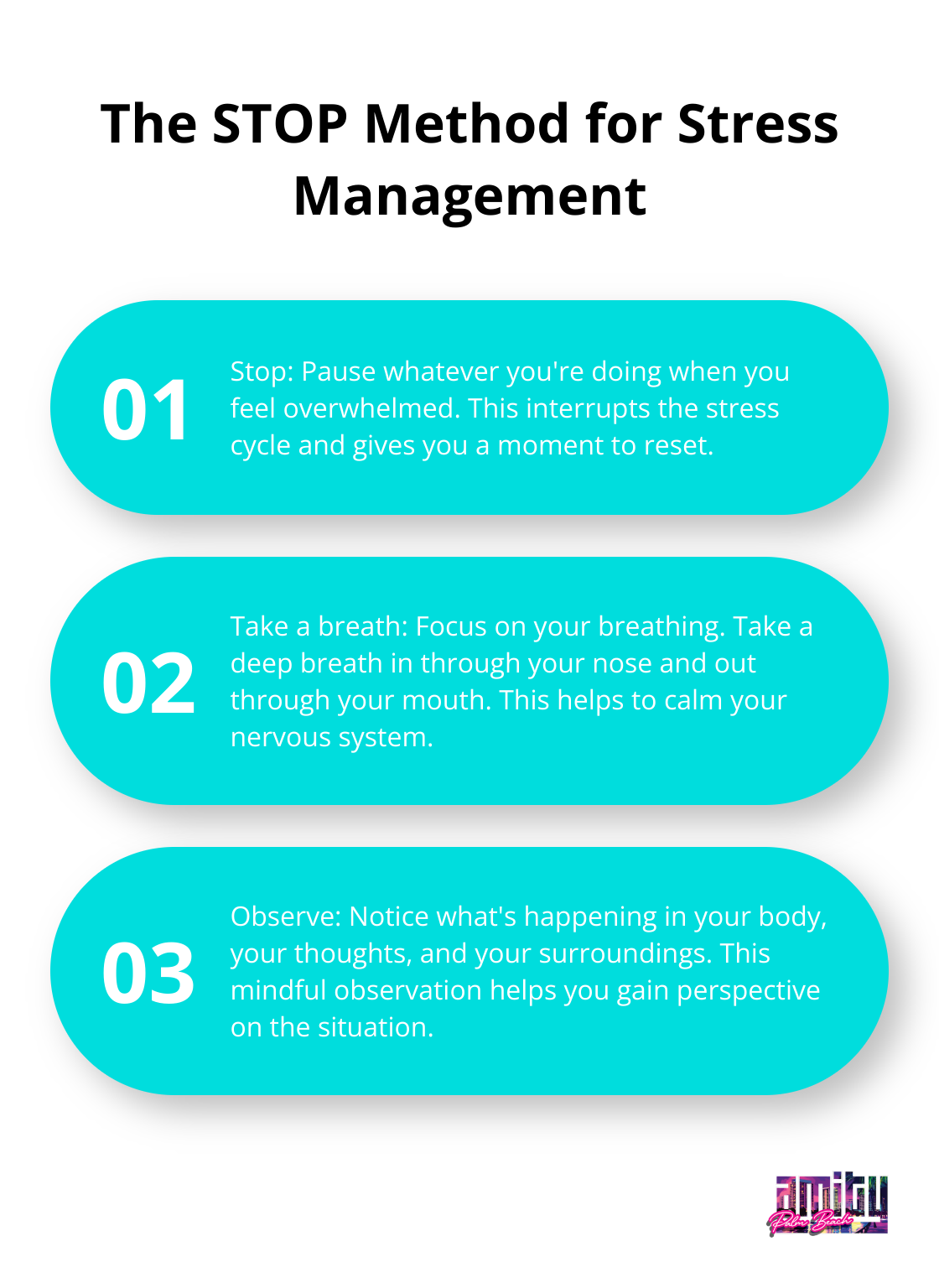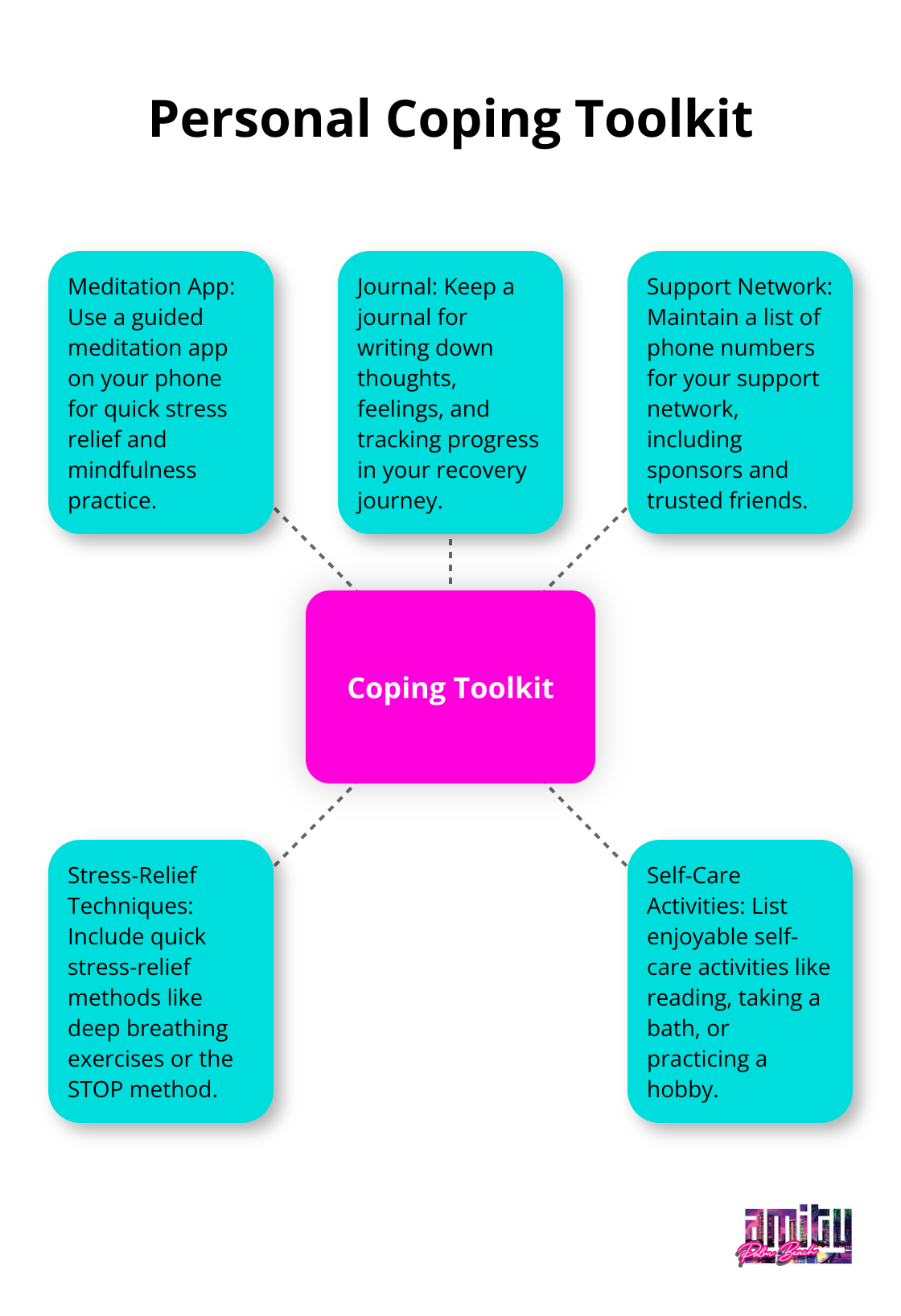At Amity Palm Beach, we understand that maintaining long-term sobriety is a challenging journey. Developing resilience is key to overcoming obstacles and staying committed to recovery.
Coping skills are essential tools that help build this resilience, enabling individuals to navigate difficult situations without relapsing. In this post, we’ll explore practical strategies to enhance your coping skills and strengthen your ability to maintain sobriety for the long haul.
What Is Resilience in Recovery?
The Power of Bouncing Back
Resilience in recovery represents the ability to overcome setbacks and maintain sobriety despite challenges. Research demonstrates that individuals with substance use disorder have moderate abstinence self-efficacy and resilience. This isn’t mere coincidence; resilience acts as a protective shield against relapse, empowering individuals to navigate triggers and cravings more effectively.
Cultivating Resilience Through Effective Coping
Resilience isn’t an innate trait-it’s a skill that individuals can develop and strengthen over time. The key to building resilience lies in the development of effective coping skills.
One practical method to enhance resilience involves mindfulness practice. A mere 10 minutes of daily mindfulness meditation can significantly reduce stress and improve emotional regulation. Apps like Headspace or Calm (popular mindfulness tools) can help incorporate mindfulness into daily routines.

Another effective strategy involves setting and accomplishing small goals. An action as simple as making your bed each morning can build confidence and create positive momentum. This sense of accomplishment strengthens resilience and reinforces the belief in one’s ability to overcome challenges.
The Support Network: A Pillar of Resilience
Building a strong support network proves essential for developing resilience in recovery. Weekly attendance at support group meetings can provide invaluable encouragement and accountability. These groups offer a safe space to share experiences, learn from others, and practice coping skills in a supportive environment.
Professional support and peer connections play a significant role in fostering resilience. Experienced clinicians can work closely with clients to develop personalized coping strategies, while group therapy sessions and alumni programs provide ongoing support and community.
Resilience as an Ongoing Process
Resilience in recovery doesn’t mean never facing challenges-it means having the tools and support to overcome them. The focus on developing coping skills and building a strong support network allows individuals in recovery to strengthen their resilience and significantly improve their chances of long-term sobriety.
As we move forward, let’s explore the specific coping skills that form the foundation of resilience in recovery. These practical tools will equip you with the strategies needed to navigate the challenges of maintaining long-term sobriety.
Building Resilience Through Practical Coping Skills
At Amity Palm Beach, we’ve witnessed how strong coping skills can significantly impact long-term sobriety. Let’s explore practical strategies that build resilience and prepare you for recovery challenges.
The Power of Mindfulness
Mindfulness isn’t just a trend – it’s a powerful tool for managing cravings and reducing stress. Start small: try a 5-minute guided meditation using popular apps (like Headspace or Calm). Increase your practice time gradually. Many find that consistent, brief sessions are more sustainable than sporadic longer ones.
A systematic review and meta-analysis published in the Journal of Substance Abuse Treatment found that mindfulness-based interventions can be effective for substance misuse treatment. This underscores the potential benefits of incorporating mindfulness into your daily routine.
Effective Stress-Busting Techniques
Stress often triggers relapse, but you can learn to manage it effectively. The STOP method (Stop, Take a breath, Observe, Proceed) is a quick technique you can use anywhere. When you feel overwhelmed, pause for 60 seconds to practice this method.

Physical activity is another powerful stress-buster. Even a 10-minute walk can significantly reduce cortisol levels. Try to find enjoyable forms of exercise, whether it’s yoga, swimming, or hitting the gym.
Create Your Support Network
A strong support system is essential for long-term sobriety. Try to attend support group meetings regularly – at least one per week. These groups provide a safe space to share experiences and learn from others who understand your journey.
Don’t underestimate the power of one-on-one connections. Identify at least three people you can call when you’re struggling. This could be a sponsor, a therapist, or a trusted friend. Having this “lifeline” can make all the difference during challenging moments.
Self-Care: An Essential Practice
Self-care isn’t selfish – it’s vital for building resilience. Create a daily self-care routine that includes activities you enjoy. This could be reading, taking a bath, or practicing a hobby. The key is consistency.
Prioritize sleep hygiene. Lack of sleep can increase irritability and weaken your resolve. Try to get 7-9 hours of sleep per night and establish a consistent bedtime routine.
Building resilience takes time and practice. As you incorporate these coping skills into your daily life, you’ll notice a gradual increase in your ability to handle challenges. In the next section, we’ll explore how to implement these skills effectively in real-world situations.
How to Make Coping Skills Part of Your Daily Life
Create Your Personal Coping Toolkit
At Amity Palm Beach, we know that coping skills are a cornerstone of relapse prevention, offering individuals the tools they need to manage stress, navigate triggers, and stay grounded in their recovery journey. Start by assembling a collection of coping tools that work for you. This toolkit should be easily accessible and tailored to your specific needs. You might include a meditation app on your phone, a journal for writing, and a list of phone numbers for your support network.

A study published in the Journal of Substance Abuse Treatment found that individuals who had a diverse set of coping strategies were more likely to maintain sobriety. Try to include at least five different coping tools you can use in various situations.
Identify Your Triggers and Plan Ahead
Knowing your triggers is essential for preventing relapse. Spend time reflecting on situations, emotions, or places that might tempt you to use substances. For each trigger, develop a specific action plan.
For instance, if stress at work is a trigger, your plan might include taking a 5-minute breathing break, calling a sponsor, or using a stress-relief app. The key is to have these plans ready before you need them.
Make Coping Skills a Daily Habit
Consistency is key when it comes to building resilience. Try to incorporate at least one coping skill into your daily routine. This could be as simple as practicing mindfulness for 10 minutes each morning or writing in a gratitude journal before bed.
Set reminders on your phone or use habit-tracking apps to help you stay consistent. Research suggests that habit formation varies widely among individuals, with habits developing in a range of 18 to 254 days.
Regularly Assess and Adjust Your Strategies
What works for you today might not be as effective six months from now. Set aside time each month to evaluate your coping strategies. Are they still helping? Do you need to add new tools to your kit?
Be open to trying new approaches. You might discover that art therapy or outdoor activities become powerful tools in your recovery journey.
Implementing coping skills is an ongoing process. It’s normal to have setbacks or days when your strategies don’t seem to work as well. The important thing is to keep practicing and refining your approach. With time and consistency, these skills will become an integral part of your sober lifestyle, strengthening your resilience and supporting your long-term recovery.
Final Thoughts
Resilience and coping skills form the foundation of long-term sobriety. These skills empower individuals to navigate challenges and maintain their recovery journey. We at Amity Palm Beach provide the tools and support necessary to develop personalized coping strategies for each unique situation.
Effective coping skills transform recovery from mere survival to a fulfilling, substance-free life. Each day you practice these skills strengthens your ability to maintain sobriety. Your resilience becomes your superpower in recovery, allowing you to grow stronger with each passing day.
We invite you to continue your recovery journey with us. Our team of experienced professionals at Amity Palm Beach stands ready to support you every step of the way. Together, we can build the resilience you need to overcome obstacles and thrive in your new life.




